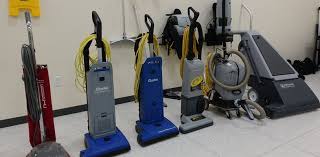Key Takeaways
- Implementing payroll solutions delivers significant time and cost savings for small businesses.
- Automated systems improve payroll accuracy, compliance, and data security.
- Efficient payroll processes drive employee satisfaction and help businesses scale with ease.
Introduction
Payroll management stands as one of the most vital yet challenging responsibilities for small business owners. Navigating complex tax regulations, maintaining accurate records of employee benefits and deductions, and ensuring compliance with ever-changing labor laws demand not only significant time but a high degree of attention to detail.
For business owners and managers who must juggle multiple responsibilities, payroll errors can be particularly damaging, resulting in costly penalties, legal complications, and a loss of employee trust. The risks of managing payroll manually can quickly overshadow the benefits of running a lean operation.
This is why many turn to trusted providers such as https://www.adp.com/resources/articles-and-insights/articles/t/the-6-best-payroll-software-providers-for-small-businesses-in-2024.aspx to streamline and safeguard their payroll processes.
Fortunately, modern payroll solutions have been designed to address these challenges. Introducing advanced automation, intuitive interfaces, and robust compliance tools, today’s platforms allow small business owners to reclaim valuable time and refocus their efforts on driving growth and delivering exceptional customer service.
Time and Cost Savings
One of the most immediate and tangible advantages of implementing payroll automation is the substantial reduction in hours spent on repetitive, manual payroll tasks.
Traditional payroll processes, which often require hand-calculating wages, printing and distributing checks, and manually entering payroll data each cycle, consume a considerable amount of time and resources.
With automated software, calculations for wages, overtime, deductions, benefits, and withholdings are executed with the click of a button, drastically reducing administrative burden.
Moreover, these systems minimize the need to hire dedicated payroll staff or contract expensive third-party service providers, delivering a significant cost saving for small businesses. The resources freed up can be redirected toward high-impact initiatives, such as marketing or new product development.
Enhanced Accuracy and Compliance
Human error is a common and often expensive pitfall in manual payroll operations. Incorrect tax withholdings, missed deadlines, and misfiled paperwork can result in underpayment or overpayment of employees, exposing businesses to legal liabilities or penalties from tax authorities.
Automated payroll solutions significantly mitigate these risks by using advanced algorithms to calculate even complex compensation scenarios, such as multiple wage rates, shift differentials, and cumulative overtime, with pinpoint accuracy.
Beyond calculations, leading payroll platforms provide ongoing updates to reflect the latest tax codes and compliance requirements, ensuring accuracy and adherence to current regulations. Automated reminders help ensure that businesses meet all deadlines for payroll submissions, withholding deposits, and regulatory filings.
As highlighted in Business News Daily, understanding how payroll works and using the right tools can make a significant difference in reducing administrative burdens and avoiding costly errors. This proactive approach to compliance is critical for small businesses, where regulatory mistakes can be particularly devastating.
Improved Employee Satisfaction
Employees are the backbone of every small business, and a reliable payroll process is key to fostering trust and high morale. Delays in payment, payroll errors, or a lack of clarity regarding compensation can quickly erode trust between employees and management.
Automated payroll systems ensure that employees are paid accurately and on time—every pay cycle—eliminating the kinds of errors and delays that can lead to dissatisfaction and high turnover.

To further enhance the employee experience, many modern payroll platforms include robust self-service portals. These features provide staff with direct access to view pay stubs, download tax documents, track paid time off, and update personal information, eliminating the need to contact HR.
This transparency and convenience foster a sense of empowerment and professionalism, while also easing the administrative load on HR staff, who no longer need to handle routine payroll inquiries. Overall, improved payroll processes contribute to a happier, more engaged, and more productive workforce.
Data Security and Confidentiality
Handling payroll data involves managing some of the most sensitive information within a business, including Social Security numbers, direct deposit details, and confidential tax records.
The risks associated with data breaches or unauthorized access are significant, not only in terms of financial loss, but also in terms of damage to a company’s reputation and legal standing. That’s why robust data security is a fundamental requirement for any effective payroll solution.
Advanced payroll systems use cutting-edge security measures, including multi-factor authentication, encryption, and continuous monitoring, to guard against cyber threats and unauthorized data access.
Secure cloud storage ensures that payroll records are protected not only against digital threats but also against disasters such as fire, theft, or flooding, which could compromise paper records.
By minimizing paper trails and automating data protection protocols, these platforms enable small businesses to remain compliant with privacy regulations while providing employees with peace of mind regarding the confidentiality of their personal information.
Scalability and Integration
Growth is a common aspiration for most small businesses, and payroll needs can quickly expand as a company hires more employees, introduces new benefit programs, or expands into new jurisdictions.
Sophisticated payroll solutions are designed to scale seamlessly, enabling business owners to add users, customize benefit options, and adapt to new tax regulations without requiring the overhaul of their existing systems or incurring costly platform migrations.
In addition, integration is a defining feature of leading payroll software. Many solutions can connect with accounting platforms, time-keeping apps, and human resources systems, creating a unified environment that reduces data entry errors, streamlines reporting, and facilitates informed decision-making.
This interconnectivity not only saves time but also gives business owners a comprehensive, real-time view of their organization’s financial health, which is crucial for growing companies navigating dynamic markets.
Conclusion
Automated payroll solutions have become essential tools for small businesses aiming to thrive in today’s fast-paced business environment. By reducing the time and costs associated with manual payroll processes, ensuring compliance with ever-evolving regulations, and safeguarding sensitive data, these platforms free up valuable resources for growth and innovation.
Just as importantly, they help create a positive workplace culture, driven by accuracy, transparency, and trust. For owners weighing their payroll options, investing in a reliable automated solution can set the stage for long-term stability and success.




